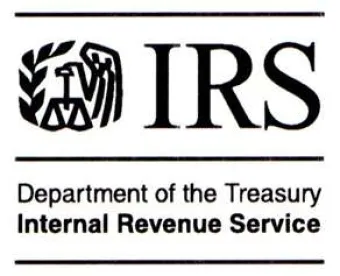On July 31, 2020, the Internal Revenue Service (“IRS”) and the Department of the Treasury released proposed regulations (the “Proposed Regulations”) implementing the provisions of Section 1061 of the U.S. Internal Revenue Code of 1986, as amended (the “Code”).[1] Section 1061, which was enacted as part of the most recent U.S. tax reform in 2017, generally extends the holding period required to benefit from the favorable long-term capital gain treatment from one year to three years in certain cases. If finalized in its current form, the highly anticipated guidance could possibly impact long-standing practices of sponsors in the private equity, hedge fund, real estate and family office sectors.
A close examination of the guidance reveals multiple gaps, areas of uncertainty and unintended consequences attributable to the very broad scope of the Proposed Regulations. We expect that impacted industry groups and practitioners will ask for additional guidance to address at least some of these issues, although the outcome of the coming presidential election may impact these efforts as well as other applicable tax rules.
Section 1061 — Background
Congress enacted Section 1061 as part of the Tax Cuts and Jobs Act (the “2017 Tax Reform”). As mentioned, Section 1061 extends the holding period required to benefit from favorable long-term capital gain treatment from one year to three years in certain cases. In general, the three-year holding period applies to gain allocated to applicable partnership interests (“API”) held in connection with the performance of certain services, including, in particular, services of the type provided by fund managers in the private equity, hedge fund, real estate and family office sectors. The enactment of Section 1061 in such manner after decades of criticism aimed at financial sponsors and the corresponding preferential tax treatment attached to carried interest was generally viewed as a favorable outcome by the industry.
Section 1061 generally defines an API as an interest in a partnership transferred to or held by a taxpayer in connection with the performance of substantial services for the partnership in an “applicable trade or business” (“ATB”). An ATB is defined as any activity conducted on a regular, continuous, and substantial basis, through one or more entities that consist of, in whole or in part, (1) raising or returning capital and (2) investing in or disposing of “specified assets,” identifying such assets for investment or disposition, or developing such assets. For these purposes, “specified assets” are defined as securities, commodities, real estate held for rental or investment, cash or cash equivalents, options or derivatives contracts with respect to any of the foregoing, and an interest in a partnership to the extent of such partnership’s proportionate interest in any of the foregoing.
In addition, Section 1061 provides a special rule for taxpayers who transfer an API directly or indirectly to certain members of their family or to a related person, who in the current year or the prior three years, performed services in any ATB in which or for which the taxpayer performed a service. Such a taxpayer must include as short-term capital gain the excess of (1) deemed net long-term capital gain with respect to their API under Section 1061(d) (discussed below) attributable to the sale or exchange of any asset held for not more than three years over (2) the amount treated as short-term capital gain under the general Section 1061(a) rules.
The Proposed Regulations
While imperfect, The Proposed Regulations provide much-needed implementation rules for the application of Section 1061. Among many other topics, the Proposed Regulations address the following main items:
-
Definitions of API and ATB. The Proposed Regulations create a presumption that whenever an individual provides services in an ATB and receives a partnership interest that such services are “substantial.” According to the Proposed Regulations, in some cases, the various activities that constitute an ATB may occur in different years.
-
Once an API, Always an API. The Proposed Regulations provide that once a partnership interest qualifies as an API, it remains an API, regardless of transfers (including gifts) or dispositions, unless and until one of the exceptions to API treatment applies. API treatment continues even after the service-provider retires or ceases to provide services, the partnership no longer meets the ATB test or the API is contributed to another pass-through entity or trust or is held by an estate.
-
Carried Interest Waivers. Following the enactment of the 2017 Tax Reform, practitioners considered the ability to use “carry waivers” as a possible technique to avoid the implications of Section 1061 and often incorporated such flexibility into governing fund documents. Such waivers permit sponsors to waive carry distributions (and avoid corresponding income allocations) on early gains (i.e., within the three-year period) in favor of subsequent distributions and allocations that are not subject to Section 1061. The Proposed Regulations do not provide clear guidance on the validity of such arrangements, but the preamble cautions that attempts to “circumvent” Section 1061 through such waivers may be challenged by the IRS based on long-standing anti-avoidance doctrines.
-
Section 1061 Applies Only to Section 1222 Capital Gains. The Proposed Regulations clarify that Section 1061 generally applies only to capital gains that would be treated as long-term capital gains pursuant to Sections 1222(3) & (4). As a result, other items of income, including qualified dividend income, gain on property used in trade or business under Section 1231 and mark-to-market capital gains under Section 1256, are not subject to the rules under Section 1061.
-
Corporate Exception. Section 1061 provides limited carve-outs to the definition of API, one of which if for partnership interests directly or indirectly held by a corporation (the “Corporate Exception”). The Proposed Regulations limit the scope of the Corporate Exception to address potentially abusive structures. First, consistent with Notice 2018-18, the Proposed Regulations provide that S Corporations are not treated as “corporations” for purposes of Section 1061. Second, the Proposed Regulations provide that corporations treated as “passive foreign investment companies” (within the meaning of Section 1297) are not eligible to the Corporate Exception to the extent a shareholder has made a Qualifying Electing Fund election with respect to thereof.
-
Capital Interest Exception. Section 1061 also provides that API does not include capital interests in partnerships that give the taxpayer a right to share in partnership capital based on (i) the basis of relative capital account balances of the partners, subject to certain exceptions for preferred returns and cost differences (such as reduced management fees) or (ii) the value of such interest subject to tax under Section 83 (the “Capital Interest Exception”). Detailed requirements must be met for the Capital Interest Exception to apply. Among other requirements, the allocations with respect to such capital interest must be (a) made in accordance with capital accounts of the respective partners, (ii) made to unrelated non-service provider partners under the same terms, provided such non-service provider partners have “significant” capital account balances aggregating at least 5% of total partner capital account balance and (iii) clearly identified under the partnership agreement and on the partnership’s books and records as separate from allocations made with respect to API. Following the enactment of the 2017 Tax Reform, practitioners considered whether a recapitalization of a partnership interest would permit what had been an API gain to be eligible for treatment as a capital interest. The Proposed Regulations appear to answer that question in a negative way. In addition, the Proposed Regulations limit the treatment of capital interest to the extent the corresponding contributions are attributable to loans made or guaranteed by another partner or the pass-through entity, or their related persons. Unfortunately, the Proposed Regulations do not distinguish the treatment based on the partner’s risk for the loss. This rule would apply, therefore, when loans are made by a fund manager to its employees to help finance their capital obligations without regard to whether the loans are recourse or non-recourse.
-
Third-Party Purchase Exception. In addition to the statutory exceptions discussed above, the Proposed Regulations provide a new exception for bona fide third-party purchasers. Specifically, if a taxpayer (1) acquires what was an API in a taxable transaction for fair market value, (2) has not, does not, and does not anticipate providing services in the relevant ATB (or the pass-through entity in which the interest is held, if different) and is not related to anyone who provides such services and (3) Section 1061(d) does not apply, then the interest will not be an API in the hands of the buyer. This exception allows investors in fund sponsors to acquire a portion of the sponsor’s API without having the income received from the investment subject to Section 1061(a).
-
Tiered Partnerships. The Proposed Regulations clarify that gains or losses with regard to an API retain that status as they are allocated from tier to tier, and to the ultimate beneficial taxpayer. The IRS explicitly intends that only such beneficial taxpayer, and not pass-through entities, aggregate API gains or losses from all their APIs, thereby allowing them to offset gain from one API with loss from another API, even if the first API is owned directly and the second is owned through a pass-through entity.
-
Holding Periods and the Lookthrough Rule. The Proposed Regulations clarify that in general (subject to the “Lookthrough Rule” described below), the relevant holding period is the direct owner’s holding period in the asset sold. Thus, if the partnership in which the taxpayer holds the API sells an asset, the partnership’s holding period in that asset will determine whether the income the taxpayer is allocated from the sale of the asset satisfies the three-year holding period requirement under Section 1061(a). The taxpayer’s holding period in its API is relevant only if the API is the asset being sold. Pursuant to the “Lookthrough Rule,” there are two situations in which some or all of the capital gain is subject to Section 1061(a). First, if the taxpayer holds the API through intermediate entities, and any of those entities have a holding period in the API of three years or less, all of the capital gain is subject to Section 1061(a). Second, if (i) the taxpayer holds the API through intermediate entities, and all of those entities have a holding period in the API of more than three years and (ii) 80% or more of the aggregate fair market value of all the assets (ignoring cash and cash-equivalents) of the partnership that granted the API both (a) would produce capital gain or loss based on the application of Sections 1222(3) & (4) if sold and (b) have a holding period to the partnership of three years or less, then a portion of the taxpayer’s capital gain is subject to Section 1061(a).
-
Distributions of Property to API Holders. The Proposed Regulations provide that property distributed by a partnership with respect to an API retains its character as “Distributed API Property,” and thus any gain recognized on the disposition of such property is included in the Section 1061(a) calculation. The holding period for the recipient of the property for Section 1061 purposes includes the holding period of the initial API-granting partnership.
-
Transfers of API to Related Person—Section 1061(d). The Proposed Regulations generally treat the transfer (including by gift) of an API or any Distributed API Property to a related person (as defined for purposes of Section 1061(d)[2]) as a realization event. Such transferor taxpayers must recognize short-term capital gain on the excess, if any, of (a) all of the net long-term capital gain from assets in which the partnership that granted the API had a holding period of three years or less which the transferor taxpayer would have been allocated had the partnership sold all of its assets over (b) the amount treated as short-term capital gain under Section 1061(a). If the transferee’s basis is determined in whole or in part by reference to the transferor’s basis, immediately prior to the transfer, the basis of the transferred interest is increased by the amount of any short-term capital gain required to be recognized due to Section 1061(d). The interest retains its character as an API in the hands of the transferee.
-
Effective Date and Transition Rules. In general, the Proposed Regulations will be effective when finalized, but may be relied upon as of the date of publication in the Federal Register, pending the issuance of final regulations, if taxpayers follow them in their entirety and in a consistent manner. The rule excluding S Corporations from the Corporate Exception is applicable for tax years beginning after December 31, 2017. The rule excluding PFICs with QEF elections from the Corporate Exception is applicable to tax years beginning after date of publication of the Proposed Regulations in Federal Register. The Proposed Regulations also provide certain transition rules for partnerships that were in existence on January 1, 2018.
If finalized in its current form, the Proposed Regulations could possibly impact longstanding practices of sponsors in the private equity, hedge fund, real estate and family office sectors. Mintz’s lawyers are available to assist with any questions you may have regarding these developments. For further guidance on these matters, please contact the Mintz lawyer with whom you usually work or the authors listed above.
Endnotes
1 Unless otherwise provided, all Section references are to the Code.
2 The definition of “related person” for Section 1061(d) is specified in Section 1061(d)(1) and differs from the definition the Proposed Regulations make applicable to the rest of Section 1061.





 />i
/>i
